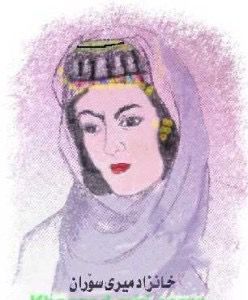A pioneering female leader who shaped Kurdish identity and resilience
Mir Khanzad of Soran stands out as a significant figure in the history of Kurdistan. Often referred to as the Great Mir or the Blind Mir, her legacy as a leader and intellectual remains underexplored.
Despite her prominence, the life and contributions of this formidable Kurdish leader have not been extensively documented. Only a handful of pamphlets and articles offer insights into her story, while her name appears sporadically in novels and Kurdish folk ballads. Sadly, there are fewer than five comprehensive works dedicated to her life and achievements. While some plays have been staged about her, a thorough scholarly examination is urgently needed.
Born in the mid-16th century, Khanzad was the daughter of Shaquli Beg and the granddaughter of Mir Seydi Beg. She ascended to power after the untimely death of her brother, Mir Suleiman Beg, in 1590. Following this tragedy, she took command of the Soran principality, deftly managing its affairs until her death in 1597.
During her seven-year reign, Khanzad oversaw the construction of numerous castles, schools, and mosques, many of which endure today. Notable structures include the military barracks in Harir, Geli Khanzad, and Khanzade Castle, situated between Pirmam and Erbil.
Khanzad’s story is not merely a legend; it is steeped in historical significance. She governed the Soran principality, located around Rawanduz, and worked tirelessly to maintain its independence from the Ottoman Empire. Her boldness, strategic acumen, and strong military knowledge were vital in navigating the political landscape of her time.
In addition to fortifying her principality, Khanzad actively promoted regional development and diplomatic relations with local authorities. She sought to unite Kurdish tribes, forging alliances to protect her people’s interests.
Mir Khanzad’s remarkable traits and leadership helped establish a powerful and stable principality, leaving an enduring legacy that deserves to be remembered and studied.

